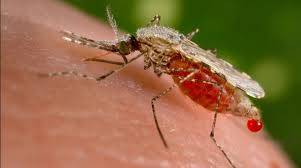Djibouti’s Bold Step: Testing Genetically Modified Mosquitoes to Combat Malaria
Djibouti, a small yet strategically important country in the Horn of Africa, is taking a pioneering approach to tackle one of the world’s most persistent health threats—malaria. In a groundbreaking move, the country has begun testing genetically modified (GM) mosquitoes in an effort to control the spread of this deadly disease. Malaria remains a major public health issue in Djibouti, where the disease continues to cause significant morbidity and mortality, particularly among young children and pregnant women.
The genetically modified mosquitoes being tested have been engineered to either reduce the population of malaria-carrying mosquitoes or to make them incapable of transmitting the parasite. These mosquitoes carry a gene designed to disrupt the reproductive capabilities of wild mosquitoes or to introduce a modification that prevents the malaria parasite from maturing within the insect. The goal is not only to reduce the number of mosquitoes but to eventually create a population of mosquitoes that can no longer spread the disease.
The decision to trial GM mosquitoes in Djibouti follows a growing body of research supporting genetic modifications as a potential solution to vector-borne diseases. Countries like the United States, Brazil, and Malaysia have already conducted similar experiments with varying degrees of success, prompting global interest in this novel approach. The technology is being seen as a complementary tool to existing malaria control methods, such as insecticide-treated bed nets and anti-malarial drugs, but with the added advantage of potentially offering a longer-term, sustainable solution.
Experts argue that genetically modified mosquitoes could revolutionize the fight against malaria, especially in regions where traditional methods have seen diminishing returns due to insecticide resistance. However, the introduction of GM mosquitoes raises ethical and environmental concerns, such as the risk of unintended ecological consequences and the potential for public resistance. In response, Djibouti’s government has ensured that the trials will be closely monitored, with an emphasis on public health safety and environmental considerations.
As Djibouti moves forward with these trials, it is positioning itself as a leader in innovative approaches to global health challenges. Success in this endeavor could have far-reaching implications for malaria control in other African nations, bringing hope to millions who live under the constant threat of this devastating disease.


